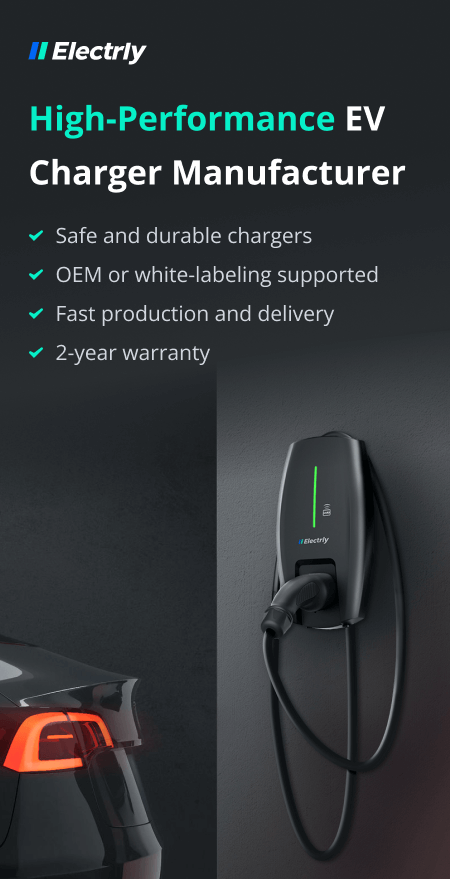As electric vehicles continue to take over the roads, drivers start to wonder about the longevity of their purchase. It's not uncommon to see a gas car from the 1960s keeping up with the modern vehicles on the highway, but will we be seeing today's EVs on the road in 50 years time?
What Factors Affect the Lifespan of Electric Car Batteries?
It is natural that an electric vehicle battery could degrade over time, but some factors can speed up this process.
Temperature
Electric vehicles are designed to operate in a variety of climates and weather conditions. However, they tend to perform optimally in mild weather, and extreme hot or cold conditions can impact their battery range and overall performance. It's therefore crucial to consider weather conditions before purchasing an electric vehicle.
In extremely hot conditions, the battery range can be reduced, and overall performance can be negatively affected. Similarly, in cold weather, the range may be shortened, and there may be reduced performance when first starting a journey. However, just like in a gas-powered car, some of the lost performance can be regained as the car heats up to normal operating temperature.
In many cold climates, gas-powered car owners need to keep their batteries plugged in overnight to prevent them from freezing. In general, electric vehicles should be kept at around 70°F (21℃) to ensure optimal performance.
Use, Wear, Tear, and Care
Electric vehicle drivers can expect to lose approximately 2-3 percent of their total range each year through normal battery use. Similar to how phone batteries degrade over time, car batteries also experience this phenomenon.
Charging an electric vehicle too frequently, too quickly, or improperly can also affect the battery life. To avoid degradation, some EVs restrict charging to 80% overnight, preventing the lithium-ion battery from staying plugged in while at full capacity. Many EVs have accompanying apps that allow drivers to monitor the battery while charging, ensuring they know when to unplug the car while charging at home. This helps prevent battery degradation and future issues.
Weight
Just the same as gas cars, hauling, towning, and driving with a full load will impact the range on an electric car. EVs in general are heavier than their gas powered equivalents, since batteries weigh so much.
The average electric vehicle battery is around 1000 lbs, with the total weight of the vehicle being between 4300 and 5000 lbs. The average gas car weighs just over 4000 lbs.
However, the heavier the battery (and car), generally the more power it can store which means it should both last longer and provide slightly more range than an entry level battery, but there are associated costs with larger batteries.
How Long Do Electric Car Batteries Last?
Most electric vehicle batteries are expected to last somewhere between 15 and 20 years. Taking into account that batteries lost approximately 2-3 percent of their charge per year, and it's suggested that batteries be replaced after they've lost 20 percent of their charge, that number may be for the more conservative driver.
Although electric vehicles are still new, it's expected that their batteries should last between 100,000 and 200,000 miles on the road. With the average driver in the United States driving about 13,000 miles, the average battery should last approximately 15.3 years.
When looking at gas cars, the average is slightly lower, at around 12 years, provided it gets proper maintenance. The average gas car also lasts approximately 200,000 miles before it is retired for good. This means that the average electric car should outlast the average gas car by 2-7 years, if properly taken care of and maintained by the owner.
What Happens to Old Electric Car Batteries?
When an electric vehicle's battery has run its course and no longer holds a charge properly, they can be recycled at specialized battery recycling centers.
For those who opt to keep their batteries, it's possible to use them as backup generators in homes to keep the lights on during a storm or power outage as well. Nissan, makers of the Leaf – a popular electric vehicle – has even used recycled EV batteries to provide backup power to Amsterdam Arena, which can hold more than 55,000 spectators. More car companies are hopping on this trend as well, such as Renault. Though there are no US manufacturers currently repurposing their batteries at the same scale as Nissan.
In Japan, Toyota is planning on using repurposed batteries to draw solar power to operate vending machines, food counters, and warmers inside buildings.
But for the more traditional method of recycling, the different materials inside the battery are separated, such as metals and plastics, and those are recycled separately. What is left is known as a black mass, the waste left behind. Black mass is composed of cobalt, manganese, copper, and other elements that power batteries. They're usually repurposed and reused to build newer batteries.
The recycling process involves disassembling the battery, crushing any materials made of plastic or general metals such as steel or iron. From there, the materials are dried and sorted out into their respective piles of material to be sent off. A second round of crushing then extracts the lithium, carbon, and other more precious materials that are used in the battery making process.
How to Make Electric Car Battery Last Longer?
There are several ways to extend the life of an electric vehicle's battery.
One crucial rule is to avoid charging the battery to 100% unnecessarily. Regularly charging an EV battery beyond 80% can cause it to wear down faster, resulting in a shorter lifespan.
Maintaining the car in moderate temperatures is also critical. Extreme temperatures, such as leaving the car parked outside during the summer or winter, can put added stress on the battery, causing it to work harder to reach its operational temperature. This can waste part of the charge and reduce the battery's overall capacity.
Using fast-charging stations too frequently can also affect battery health. While fast charging can be beneficial during a road trip when time is of the essence, doing it too often can put undue stress on the battery and lead to severe problems down the line.
It's worth noting that many EVs have built-in safeguards to prevent charging under incorrect conditions, such as stopping when the battery hits 80%. Manufacturers understand that EVs are intended to last a long time, and with fewer moving parts than gas cars, it's entirely possible for them to do so.
As the popularity of electric vehicles continues to increase, time will tell if these methods remain necessary or if technology will advance to the point where they are no longer required.
Conclusion
Electric vehicles are a dependable alternative to gas-powered cars, provided they are adequately maintained. By taking a few extra steps to ensure that an EV is well-cared for throughout its life, the car can last for decades and travel hundreds of thousands of miles without ever emitting exhaust from a tailpipe. Maintaining the EV at the right temperature, charging it only to a certain level, and avoiding overuse of fast chargers are critical to keeping an electric vehicle running smoothly for years to come.


